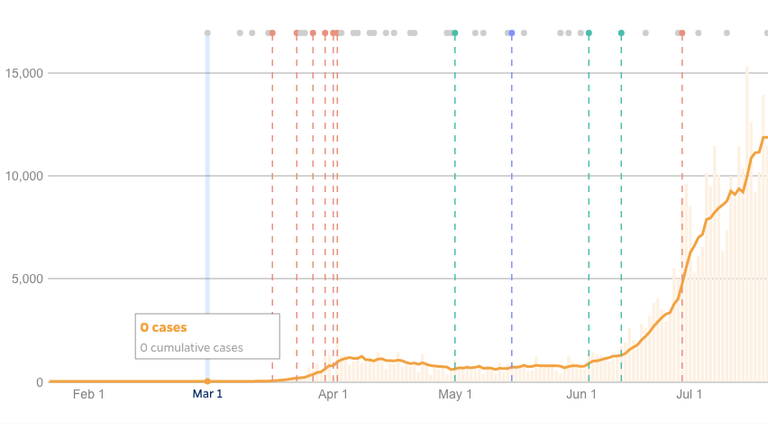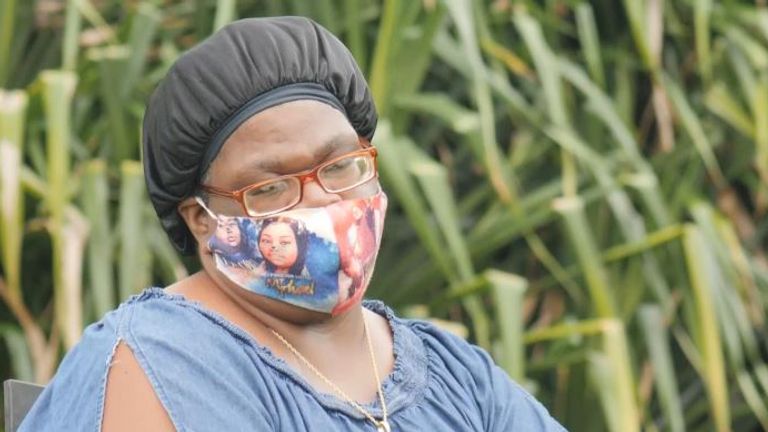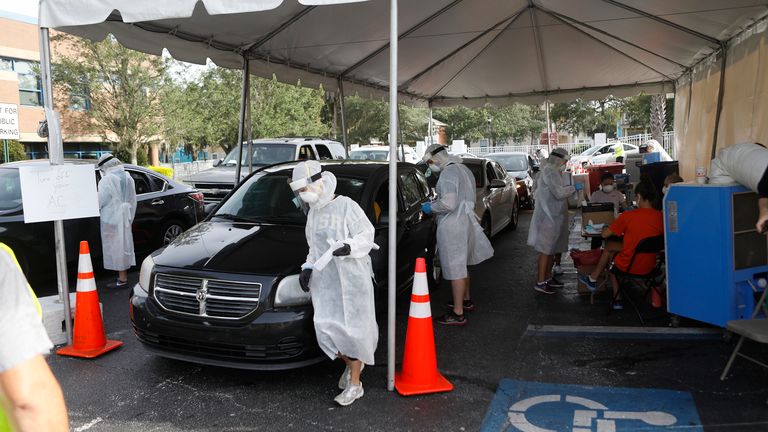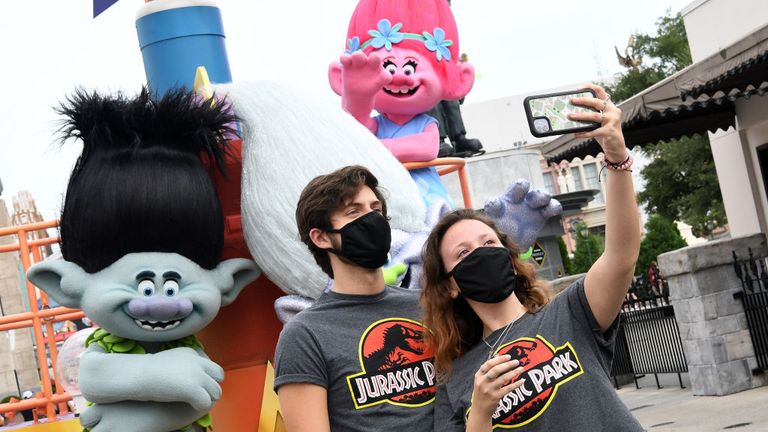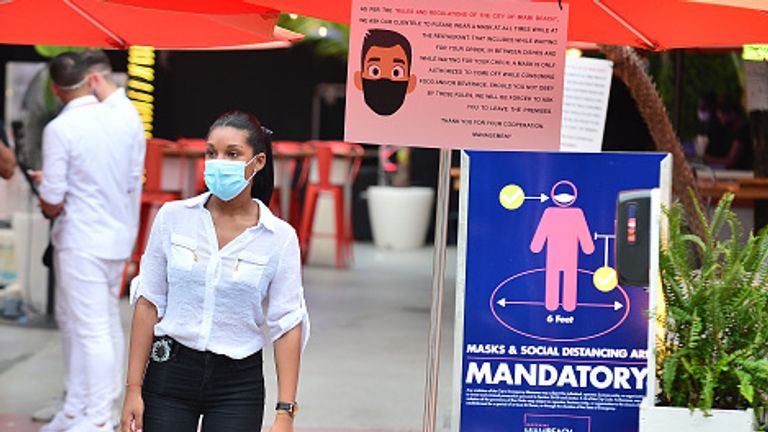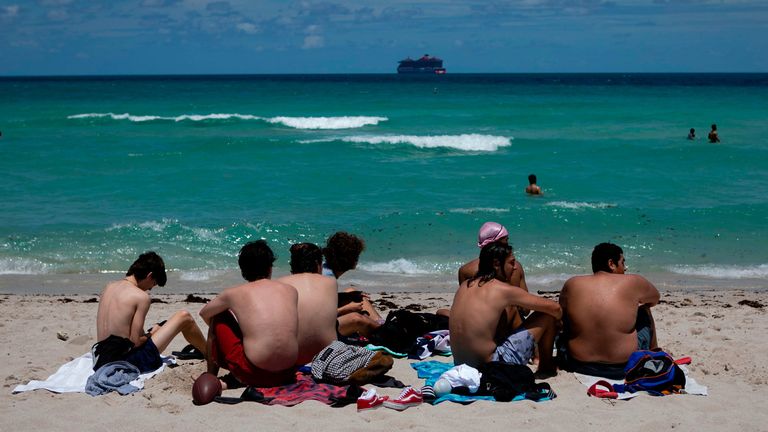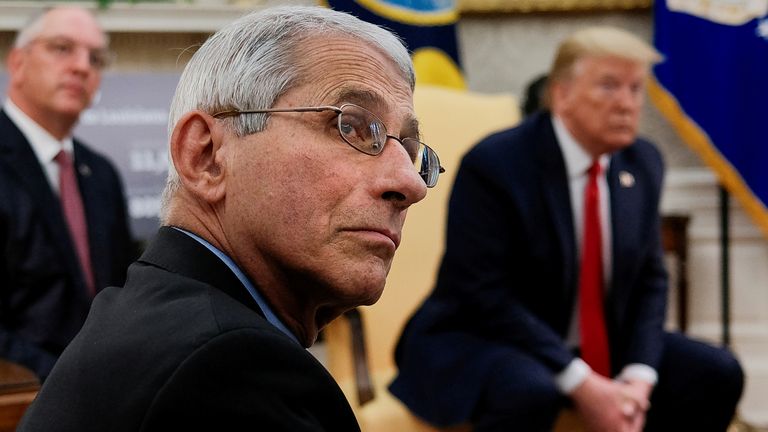Donald Trump has called off next month’s Republican convention in Florida because of the spike in coronavirus cases there – but why is the state now being hit so severely?
How bad is it in the Sunshine State?
There have been nearly 390,000 cases so far – the second-highest in the US after California – and more than 5,500 deaths (ninth highest).
But it’s the rise in recent weeks that has caused alarm.
Florida rose to around 10,000 new cases per day during June, with a national record of 15,224 on 12 July.
The state has also recorded the most new coronavirus infections in the US over the last seven days, according to the Centers for Disease Control and Prevention, at 77,044.
On Thursday, it announced a new daily deaths high for the state of 173.
:: Listen to Divided States on Apple podcasts, Google Podcasts, Spotify, and Spreaker
Nearly 19% of tests also came back positive over the last week – way above the 5% World Health Organisation benchmark on when a country or region should reopen, and suggestive of widespread community transmission.
Republican state governor Ron DeSantis, however, has said the situation is improving and is “much better” than two weeks ago, with 20% of intensive care beds still available.
Is it just down to more testing?
It’s true there are a lot more COVID-19 tests being done, and this does play in a role in more cases being diagnosed.
But doctors say this alone cannot be blamed for such a significant spike.
For instance, the ramping up of testing in Florida in mid-May did not immediately produce increased cases as you would expect if it was the primary factor, says infectious diseases expert Dr Juan Dumois.
Did Florida’s mess up its lockdown strategy?
Possibly – it was one of the last states go into lockdown and it took until the start of April before a state-wide order was announced.
That’s nearly two weeks after New York and dozens of other states.
Perhaps more crucially, it only lasted a month and was one of the first states to start to open again.
Restaurants and shops were back in business – with reduced capacity and distancing – in early May, shortly followed by gyms.
Bars, tattoos parlours reopened on 5 June, and the state’s famous theme parks such as Universal Studios, SeaWorld and Walt Disney World also welcomed guests.
Just two weeks later, a steep upward trajectory in cases had taken hold – rising from just under 1,000 per day to over 3,000.
It appears the speed of the reopening – with not enough time given to stand back and assess the effects – may have been a major factor.
Are people to blame for not taking things seriously?
Mr DeSantis has accused the public and businesses of flouting social distancing rules and said people threw “caution to the wind” when he effectively shut down bars again on 26 June, ordering them to only sell take-outs.
“People weren’t following it,” the governor said.
“There was widespread noncompliance, and that led to issues.
“If folks just follow the guidelines, we’re going to be in good shape. When you depart from that, then it becomes problematic.”
Did ‘out of control’ young people drive the surge?
The average age of new cases in Florida over the last two weeks is around 40-years-old, according to the state’s department of health.
That’s a lot younger than at the start of the pandemic.
Florida’s governor has indicated the younger generation’s keenness to socialise has fuelled the rise in cases,.
“You can’t control… they’re younger people. They’re going to do what they’re going to do,” Mr DeSantis told a press conference last month.
He added: “If you look at that 25 to 34 age group, that is now by far the leading age group for positive tests.”
His theory is backed up by Dr Anthony Fauci – who’s appeared at White House press briefings.
The infectious diseases expert said the demography of infections is now “at least 15 years younger than what we were seeing a few months ago when things were surging in New York”.
He told the WebMD site last week: “I’ve been analysing this, really, for quite a while, is that, particularly with young people, and clearly young people are driving this new surge.”
Dr Fauci called for more education, so people realise that although they may not get sick, they could pass it on to others with potentially fatal consequences.
“By allowing yourself to get infected or not caring if you do get infected, you are propagating a pandemic,” Dr Fauci said.

